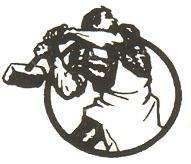Anti-Parliamentary Communist Federation
| Part of a series on |
| Left communism |
|---|
 |
|
People |
|
Related topics |
| Communism portal |
The Anti-Parliamentary Communist Federation (APCF) was a communist group in the Britain. It was founded by the group around Guy Aldred's Spur newspaper - mostly former Communist League members - in 1921. They included John McGovern.
The group sent delegates to the Third Congress of the Comintern, but refused to join the Communist Party of Great Britain on the grounds of the latter's parliamentarianism and aim to join the Labour Party. The APCF later declared itself against "Leninism", which it claimed had distorted any gains made by the October Revolution.
The group began publishing Commune, with contributions from left communists across Europe, and moved towards council communism. Aldred left in 1933, claiming that parliamentarianism was finished, and there was therefore no point in an anti-parliamentary group. He later founded the United Socialist Movement.
Adopting an increasingly anarcho-communist outlook, the group supported the Spanish Popular Front, working with Freedom, but later some anarchists in the APCF split away, and the group adopted a more critical approach to the CNT. Ernst Schneider, a seaman and veteran of the German Revolution joined the group following his departure from Nazi Germany in 1939. He was a consistent contributor to the federations journal Solidarity and in 1943 published an account of the Wilhelmshaven Revolt.[1]
In 1941, the group renamed itself the Workers' Revolutionary League.
The League opposed World War II, during which it published the Solidarity newspaper, but dissolved in 1945 when the revolutionary upsurge they had predicted failed to occur. Some former members founded a Workers' Open Forum to continue political activity. This continued until the late 1950s.
References
- ↑ Schneider, Ernst. "The Wilhelmshaven Revolt". Marxists.org. Marxists Inernet Archive. Retrieved 30 August 2016.
- The British Communist Left 1914-45, Mark Hayes (International Communist Current)
- Anti Parliamentary Communism, Mark Shipway (Anarchist Federation)